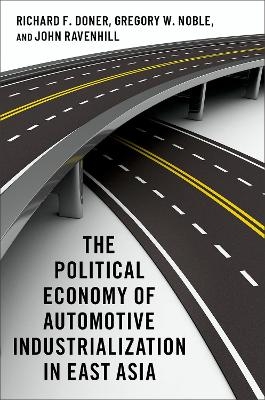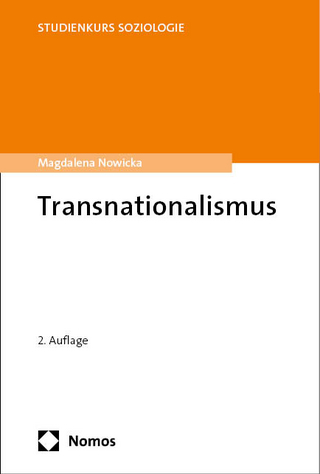
The Political Economy of Automotive Industrialization in East Asia
Oxford University Press Inc (Verlag)
978-0-19-752026-0 (ISBN)
The Political Economy of Automotive Industrialization in East Asia provides a political explanation for why development strategies and performance have been so uneven within one of the world's most important regions. Utilizing interviews and original-language research from multiple nations, this book explains that factors such as market size and neoclassical economic policies alone cannot explain these patterns of development. Richard F. Doner, Gregory W. Noble, and John Ravenhill instead highlight the significance of two sets of factors: countries' very different capabilities for implementing policies and the political forces that help to explain the emergence of effective institutions. Through cross-national analyses of China, Taiwan, South Korea, Indonesia, Malaysia, the Philippines, and Thailand, the book sets up a clear structure for understanding industrial development and how it enables or constrains the capabilities of domestic firms. Brief comparisons with Brazil, Mexico, and other developing countries confirm the utility of the analytic framework and demonstrate how it is superior both to accounts in mainstream economics and much of political science, which fail to give sufficient emphasis to the role of public and public-private institutions, or provide an explanation of the political bases of those institutions.
In a world where auto assemblers and suppliers are facing new challenges in an ever-evolving industry--such as the transition to electric and autonomous vehicles--this book offers a crucial perspective on the centrality of institutional capacities and political economy. By tracing the divergent trajectories of seven nations, The Political Economy of Automotive Industrialization in East Asia offers lessons beyond the automobile industry that illustrate the broader importance of institutions to economic growth.
Richard F. Doner is Goodrich C. White Professor Emeritus of Political Science at Emory University, where he taught from 1985 to 2019. He is the author of The Politics of Uneven Development (2009) and From Silicon Valley to Singapore (2000). Gregory W. Noble is Professor of Politics and Public Administration in the Institute of Social Science at the University of Tokyo. He is the author of Collective Action in East Asia (1998) and since 2010 has served as Editor-in-Chief of Social Science Japan Journal. John Ravenhill is Professor in Political Science at the University of Waterloo, where he is the Department Chair. He was previously the Director of the Balsillie School of International Affairs in Waterloo. He is co-editor of The Oxford Handbook of International Relations of Asia (OUP, 2014) and editor of the sixth edition of Global Political Economy (OUP, 2020).
Preface
Chapter One: Introduction
Chapter Two: The Lure and Challenges of the Automobile Industry
Chapter Three: Institutions, Politics and Developmental Divergence
Chapter Four: Thailand: Early opening and Export success
Chapter Five: The Philippines and Indonesia: Extensive Development Arrested and Delayed
Chapter Six: Korea: Successful Intensive Industrialization
Chapter Seven: Malaysia: How Intensive Development Strategies Fail in the Absence of Appropriate Institutions
Chapter Eight: China: Revamping socialist institutions for a market economy
Chapter Nine: Taiwan: Balancing independent assembly, MNCs, and parts promotion in a small market
Chapter Ten: Conclusion
References
| Erscheinungsdatum | 07.05.2021 |
|---|---|
| Verlagsort | New York |
| Sprache | englisch |
| Maße | 231 x 152 mm |
| Gewicht | 635 g |
| Themenwelt | Sozialwissenschaften ► Politik / Verwaltung ► Europäische / Internationale Politik |
| Sozialwissenschaften ► Politik / Verwaltung ► Vergleichende Politikwissenschaften | |
| Wirtschaft ► Volkswirtschaftslehre ► Wirtschaftspolitik | |
| ISBN-10 | 0-19-752026-X / 019752026X |
| ISBN-13 | 978-0-19-752026-0 / 9780197520260 |
| Zustand | Neuware |
| Haben Sie eine Frage zum Produkt? |
aus dem Bereich


